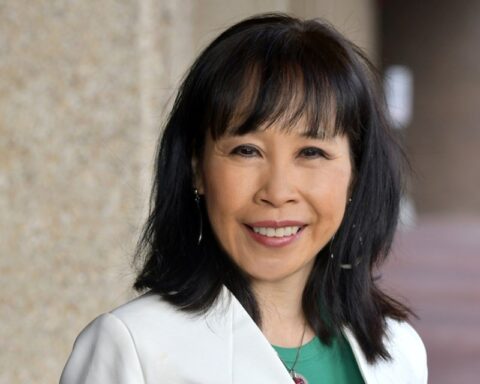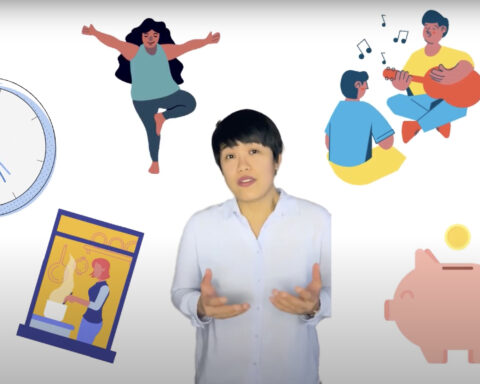Ever since its peak in the early 1990s, Somali immigration to Canada has been moving at a steady pace, with nearly 1,500 new permanent residents in the year 2014, according to Statistics Canada.
Despite this steady influx, there seems to be a lack of information about the opportunities available to Somalians who want to save for their children’s education.
“The reason Somalis fled Somalia is for a better opportunity in life and a better future for their kids. And for most people, education equals a better future,” says Abdinasir Mohamed, a community activist with Black Creek Community Farm. The organization serves Toronto’s Black Creek community, where Somali is one of the top 10 non-official languages spoken at home.
However, education saving plans offered in Canada — such as the Registered Education Saving Plan (RESP) — are not popular in the Somali community, explains Mohamed.
“Education saving plans are important to them, but most of them can’t afford it,” he says.
Struggles faced in pursuit of education
Amina Awad, 32, was among those immigrants who arrived to Canada from Somalia during the late ‘90s. Her father sponsored her and her younger siblings after establishing himself a few years prior.
Awad’s dad didn’t open any financial plans for his older children when they arrived to Canada. He says the job he worked at the time only paid for the necessities.
“I made a little over minimum wage, but thanks to the money I saved up we were able to get by until I managed to get a higher paying job,” Awad’s father says, who didn’t want to be named.
Awad also spent a lot of his savings on simply bringing the family over, which he says was relatively expensive.
“Education saving plans are important to them, but most of them can’t afford it.”
Awad, who is a college graduate, arrived in Canada when she was a teenager. She says a better education is one of the many reasons her father wanted to move the family to Canada.
“The war that was going on was an obvious reason to leave the country, but a free education was another reason to choose Canada,” says Awad’s father.
Today, Awad’s father saves money for his youngest child, who is currently in middle school.
As for Awad, despite many obstacles, including a language barrier, she managed to get accepted into college and graduate with a diploma in early childhood education.
“I took OSAP (Ontario Student Assistance Program) to pay for school. It was expensive, but it was the only thing I knew,” she explains.
Because Awad knew what it felt like to not have money for post-secondary education, she signed up for the RESP with Knowledge First Financial for her first child, who is two years old. Since her daughter was just a few months old, Awad has been saving $100 a month.
Awad says her co-worker recommended her to Knowledge First, as the company asks customers whom they meet with if they know anyone who has a newborn who would be interested in the education saving plan.
She says, “I got a call from one of their associates, who came to my house, telling me about what they offer and more.”
Lack of knowledge
Hodan Osman, a mother of five young children, the oldest being 12-years-old and the youngest two, says she doesn’t trust saving programs.
She admits her lack of knowledge about government-assisted education saving plans is one of the reasons for her distrust.
“I heard you aren’t allowed to take money out once you start saving or you will be charged a fee,” says Osman, adding, “I can save my own money without going to a bank.”
Osman is not alone in her thinking. Her sister, who immigrated with her to Canada in 1990, has never opened an education saving plan for any of her children, mainly for the same reasons.
SmartSAVER, a non-profit community project, aims to increase the awareness amongst people like Osman and her sister about education savings opportunities in Canada.
“Since 2004, only about 30 per cent of kids who are eligible for the bounds have actually gotten it.”
“SmartSAVER, basically, looks for ways to help organizations promote the Canada Learning Bond (which provides up to $2,000 to individuals who open an RESP), and in particular help them get people who are eligible to sign up for the bond,” says Joe March, who is a partnership manager for SmartSAVER.
“Since 2004, only about 30 per cent of kids who are eligible for the bounds have actually gotten it,” adds March
He says this is because there is a lack of knowledge about the bond and that though a lot of newcomers would be eligible for it, they don’t apply because of things like the language barrier.
Unlike other programs, SmartSAVER offers services in over 16 languages and a simplified process.
March says for some newcomers, even if they know of the RESP, going to a financial institution such as Royal Bank of Canada or Bank of Montreal might be intimidating.
“We set up meeting with banks for clients, so the banks know what to expect and present as soon as the customer comes in,” he says.
Journalist Priya Ramanujam mentored the writer of this article, through the New Canadian Media mentorship program.
This is the final article in a five-part education series (click for part one, part two, part three and part four) on New Canadian Media looking at the experiences of different families with saving for education in Canada. November is Financial Literacy month across Canada and November 15 – 21 was Education Savings Week.
Visit SmartSAVER.org to learn more about Registered Education Savings Plans (RESP) and to start an RESP with your choice of six major banks and credit unions. RESP information is available in 16 languages. Apply online between Nov. 1 and Dec. 31, 2015 and you will automatically be entered to win one of nine $1,000 weekly prizes! Learn more here.




